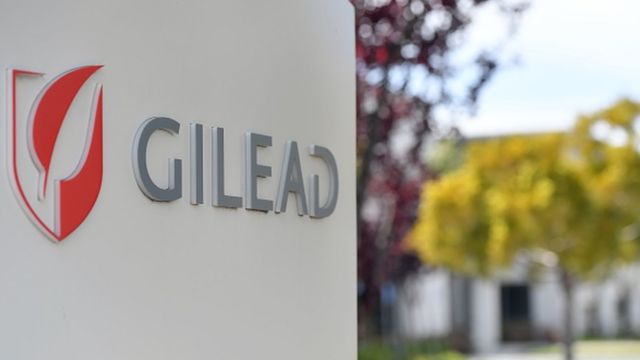- Drafting
- BBC World News
—
2 hours
Image source, Getty Images
—
Remdesivir will only be prescribed in very specific situations, according to Brazil’s health regulator.
–
One year after the declaration of the start of the covid-19 pandemic, Mexico and Brazil have just approved the drug remdesivir – developed by the US pharmaceutical company Gilead Sciences – for specific use in this disease.
–
Both the Federal Commission for the Protection Against Sanitary Risks of Mexico (COFEPRIS), and the National Sanitary Surveillance Agency of Brazil (ANVISA), They announced the authorization this Friday.
–
The endorsement of the drug in Mexico faced many obstacles and its use was rejected on two occasions due to lack of evidence of its effectiveness, for which the authorities requested more information before finally authorizing it.
–
According to the Mexican government website, “COFEPRIS limited the therapeutic indication to avoid misuse of the drug, including specifications for its medical prescription,” while warned against self-medication and self-prescription.
–
For his part, Gustavo Mendes, general manager of Medicines and Biological Products of ANVISA, said: “The registration of the medicine is the result of the efficacy, safety and quality presented. Its use will be restricted to hospitals, so that patients are duly monitored “.
–
Although the drug is already approved in more than 50 countries (including the US, Canada, Japan and the European Union), its use was discouraged by the World Health Organization (WHO) in November 2020.
–
In Brazil, the infectologist Raquel Stucchi, from the State University of Campinas, assures that remdesivir will not help control or modify the course of the pandemic. “It is a drug that can slightly reduce the possibility that the seriously ill patient will need a ventilator, but mortality has not changed in studies and it has a very high cost,” he said.
–
Indeed, the price per dose set by Gilead Sciences is US $ 390, but according to its own studies, patients must receive an average of six doses, which increases the costo total a US$2.340.
–
But how does this treatment work? And in what cases of covid-19 will it be administered?
–
Obstacle counting the virus
The drug developed by Gilead Sciences belongs to the class of antivirals, whose objective is to reduce or stop the multiplication of the virus within our body.
–
“The exact role it plays against covid-19 remains uncertain“, observes the infectious diseases specialist Leonardo Weissmann, from the Emílio Ribas Institute, in São Paulo.
–
At the beginning of infection, the coronavirus invades cells located in the mouth, nose, and eyes.
–
From there, it takes advantage of the cellular machinery to create new copies of itself, which perpetuate this process by taking over new cells.
–
This attack progresses through various parts of the body and reaches organs such as the lungs and intestines.
–
To add insult to injury, an inflammatory reaction occurs that can damage other vital systems and tissues in the body.
–
The consequence of all this aggression are the typical symptoms of covid-19, such as fever, muscle aches, cough and shortness of breath.
–

Image source, Getty Images
—
Remdesivir was developed by the American pharmaceutical company Gilead Sciences.
–
In most cases, the immune system can control the situation after a few days.
–
However, many patients do poorly. They need to stay in the hospital and receive oxygen and other care to survive.
–
A part of them, unfortunately, does not resist and ends up dying.
–
Remdesivir would act in any of these stages of the infectious process, slowing down virus replication in the human organism.
–
What does science say?
Remdesivir was tested in a study sponsored by the US National Institute of Allergy and Infectious Diseases that involved 1,048 volunteers hospitalized with COVID-19.
–
Between February and May of last year, 532 research participants received doses of the drug for 10 days.
–
The other 516 were given a placebo, which is a substance with no therapeutic effect.
–
Looking at how the two groups fared, the scientists noted that those who were treated recovered after an average of 10 days.
–
In the group that received the placebo, this period was extended to 15 days.
–
These data were published on November 5 in the scientific journal The New England Journal of Medicine.
–
Two weeks later, the WHO published an update to its guidelines contraindicating the use of remdesivir not considering that solid scientific evidence still existed.
–
“The evidence suggests a lack of benefit in terms of mortality, the need for mechanical ventilation, a time for clinical improvement and other important outcomes,” the organization announced.
–
For the infectologist Stucchi, the WHO decision has to do with the discrete effects and the high value of the treatment. “In terms of cost-benefit, remdesivir has not yet been effective,” he opined.
–

Image source, EPA / KEN CEDENO
—
When he was infected with covid, the now former tooth Donald Trump was treated with remdesivir.
–
Through a note sent to the press after the approval of ANVISA, the senior medical director of Gilead Sciences in Brazil, Rita Manzano Sarti, said she believed that many lives can be saved and “generating relief at a time of maximum pandemic, relieving the health system and providing the opportunity for more patients to receive adequate treatment.”
–
During the press conference, ANVISA also provided its point of view on the different evaluations carried out by international regulatory bodies and the WHO:
–
“The study carried out by the WHO evaluated the occurrence of mortality and patients with a slightly different profile than those evaluated in the other studies that we considered to publicize the drug. The study that we consider valid focused on reducing the hospitalization time of patients. patients, and we saw that there was a reduction in hospitalization, “said Renata Soares, Anvisa safety and effectiveness evaluation manager.
–
How will it be applied?
Mexico’s regulatory body, COFEPRIS, declared that the drug is authorized for the exclusive use of hospitals and specialized doctors during the early stages of the disease.
–
The same was established by ANVISA in Brazil, adding that remdesivir will only be prescribed in very specific situations.
–
It also notes that the drug will not be available in pharmacies and the therapy is only allowed for use between five and ten days in people older than 12 years and weighing more than 40 pounds.
–
In addition to suffering from advanced COVID-19, the patient eligible for treatment must have pneumonia and need supplemental non-invasive oxygen.
–
In other words, you cannot receive mechanical ventilation or extracorporeal membrane oxygenation (known as ECMO).
–
For the specialist Leonardo Weissmann, the drug is still surrounded by uncertainties. “The data we have suggests that it reduces recovery time, which may be of clinical benefit. However, a reduction in mortality has not been clearly shown,” he says.
–
The use or not of therapy will depend on the case by case assessment to be carried out by the team of healthcare professionals.
–

Image source, Getty Images
—
The World Health Organization does not advise the use of remdisivir.
–
Other treatments
For now, no other drug has been shown to specifically prevent or treat COVID-19.
–
In the most severe cases, which require hospitalization and intubation, doctors often use oxygen and some anti-inflammatory drugs.
–
In mild and moderate conditions, the indication is to stay home, rest, drink plenty of water and, if necessary, use medications that control fever and body aches.
–
If you experience shortness of breath or symptoms worsen, it is worth seeking guidance from a healthcare professional or going to an emergency room.
–
Drugs such as hydroxychloroquine, ivermectin and azithromycin, which make up the so-called “early treatment” or “kit-covid”, they have no efficacy and they are contraindicated by the most important national and international health institutions, due to the risk of serious side effects, such as cardiac arrhythmia.
–
*With information from André Biernath of BBC News Brasil, in Sao Paulo
–
 —
—
–
Now you can receive notifications from BBC Mundo. Download the new version of our app and activate them so you don’t miss out on our best content.
—


